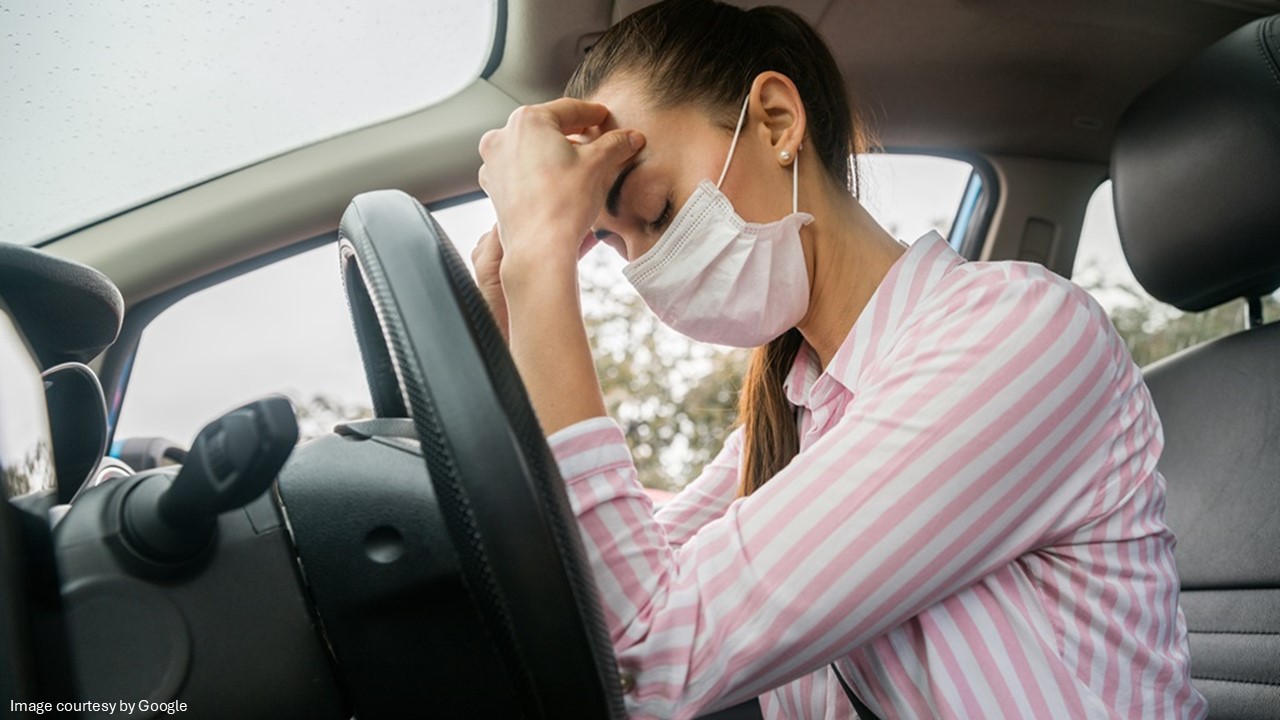Motion sickness is more like a mental friction sickness where your eyes, ears, or whole body remains static, but the carrier of your body continuously moves; this condition sends a conflicting message to your brain. Therefore, you develop motion sickness symptoms like nausea, vomiting, headache, shivering, and dizziness. Motion sickness usually happens while traveling in an open vehicle or sitting in a swing. It is a temporary condition that responds to either real or perceived motion. Motion sickness medication prevents these symptoms and keeps your body and brain stable and healthy.
This page will discuss the causes, symptoms, and prevention tips to deal with motion sickness.
Cause of motion sickness
The exact neurobiological cause of motion sickness cannot be ascertained even today. However, the factors behind the condition are largely related to the disturbance our brain perceives while traveling or riding in a car, bus, or boat deck. Some experts claim that motion sickness occurs when your brain receives conflicting signals from your sensory systems—your eyes, inner ear (which senses motion and balance), and your body. The continuous sensory mismatch confuses your brain and triggers symptoms like nausea, dizziness, vomiting, numbness, and sweating. An anti-vomit medicine or nausea medicine can suppress this condition, but the risks and triggers of the condition remain as long as you travel. In other words, motion sickness results from a mismatch between actual versus expected sensory inputs.
Apart from sensory mismatch and travel-related triggers, there are some other contributing factors, such as anxiety or mental stress, disturbing visual conditions, poor ventilation, uncomfortable body posture, fatigue, hunger, and dehydration, which can potentially cause motion sickness in many cases. Moreover, children below 12 are found to be more susceptible, and pregnant women are more likely to develop motion problems while riding. People living with migraine and/or sensory problems find it difficult to suppress motion sickness, and a long trip can make the condition more severe. Motion sickness medicines may not be effective if you experience these conditions every time you ride.
The role of the ears and brain
Our inner ears help us control and establish a balance of senses. They make a vestibular system comprising three pairs of semicircular canals, saccule, and utricle (two sacs). The mechanism of semicircular canals is such that their fluid moves with the movement of your head, whereas the saccule and utricle are sensitive to gravity, and they communicate with the brain regarding your body’s posture. So, taking medicine for vomiting or nausea to treat motion sickness works on these senses to create a balance while you are on a ride.
Understand the symptoms of motion sickness
There could be only one or multiple symptoms of motion sickness that one experiences at a time. The common signs of this condition are nausea and vomiting, excessive sweat, pallor, headache, drowsiness, yawning, numbness, uneven heartbeat, dizziness, loss of appetite, and increased salivation. In many cases, these symptoms are not so severe, and once your body comes into contact with airy and stable surroundings, you feel good enough to go. The failure to diagnose the early and more mild symptoms of motion sickness may delay treatment. However, people look for an effective motion sickness medication to deal with the condition, and it’s advised to choose the right one for your next trip if you have suffered from the condition in the past.

Precautions and tips to deal with motion sickness
Understanding the cause and symptoms of your motion sickness can help you choose appropriate preventive measures like medicine for nausea and vomiting or other nausea-avoiding supplements. Here are some useful tips, precautions, and treatments you can consider while traveling.
-
- Keep changing your body postures as it helps you change your head movements and makes you feel relaxed. Only one body position throughout the ride makes it physically draining and invites fatigue.
- Avoid concentrating on the book for too long because paying attention while your body is in a moving vehicle raises the risk of motion sickness.
- Avoid smoking, alcohol, or any intoxicating materials while you are on a ride.
- Avoid intense perfume during your ride and keep your body hydrated. Avoid steering outside continuously and divert your attention from one object to another.
- Listen to music or talk to your dearest one on the phone or somebody sitting next to you to divert your attention.
- Before traveling, ensure to eat less. Also, avoid oily and fried food before or during travel to eliminate nausea or motion sickness.
- Keep homemade motion sickness medication like lemon juice, soda water, ginger, and glucose water to avoid drowsiness and travel fatigue. Also, keep general medicine for nausea and vomiting, as it works in the case of any untoward situation while you are away from home.



